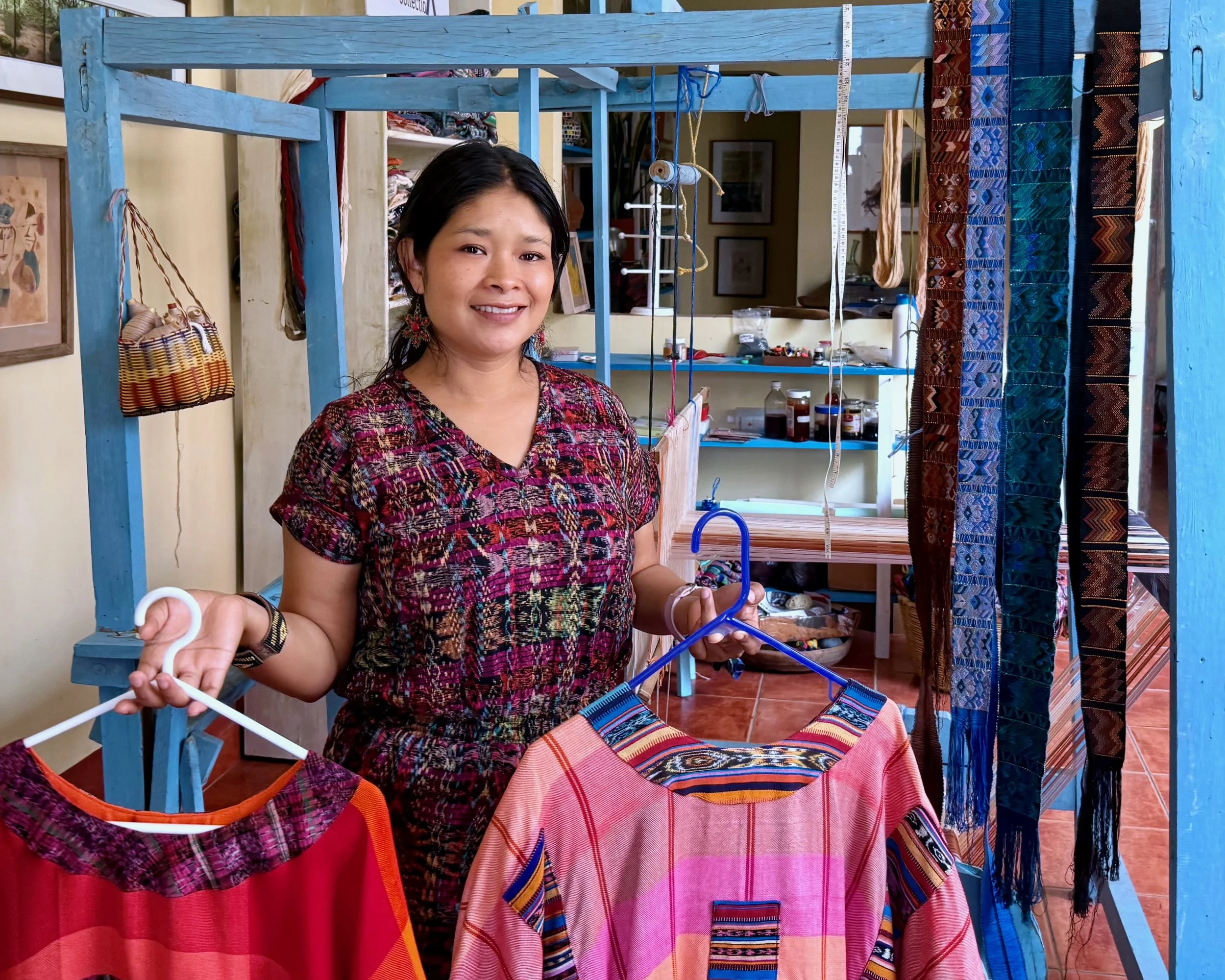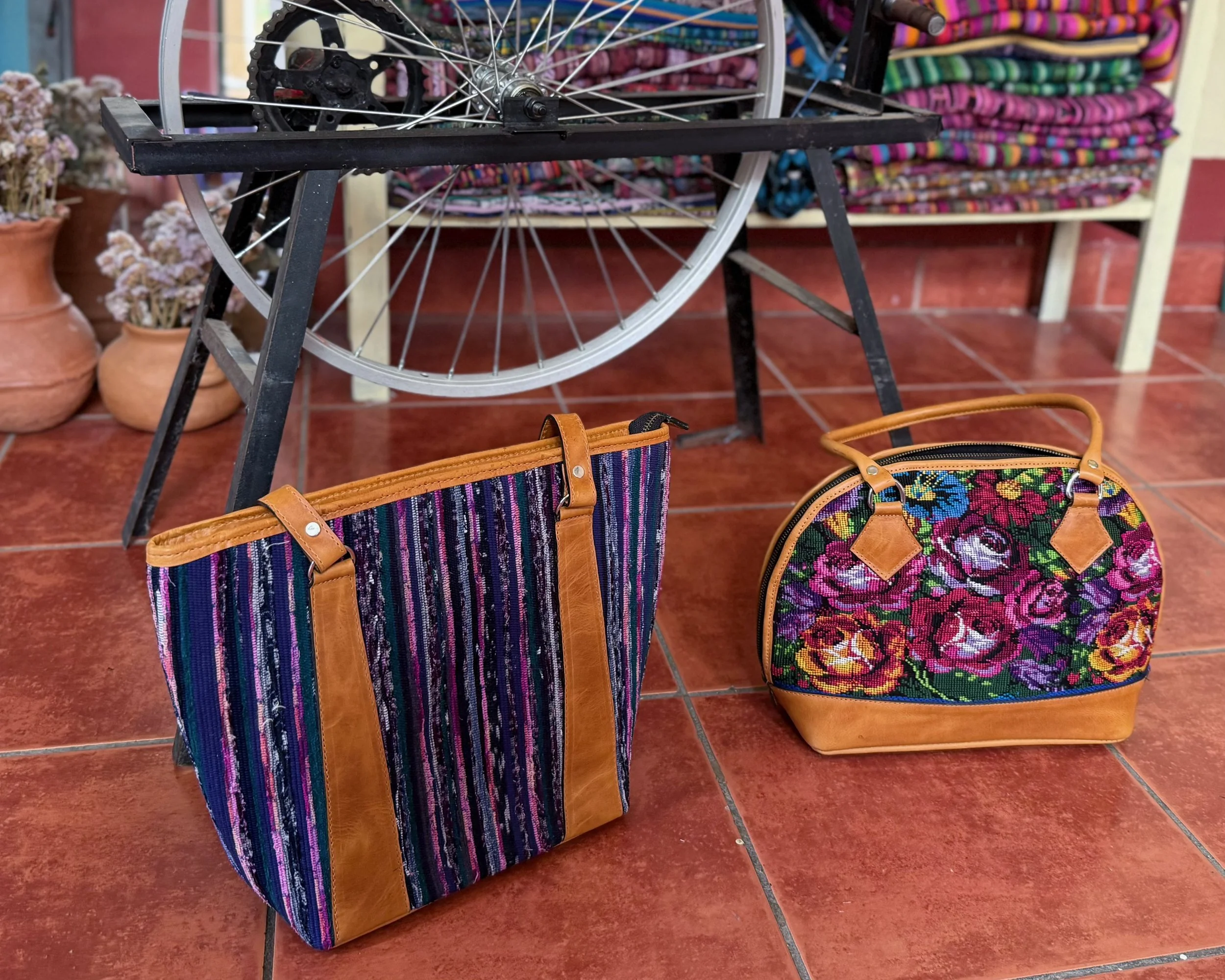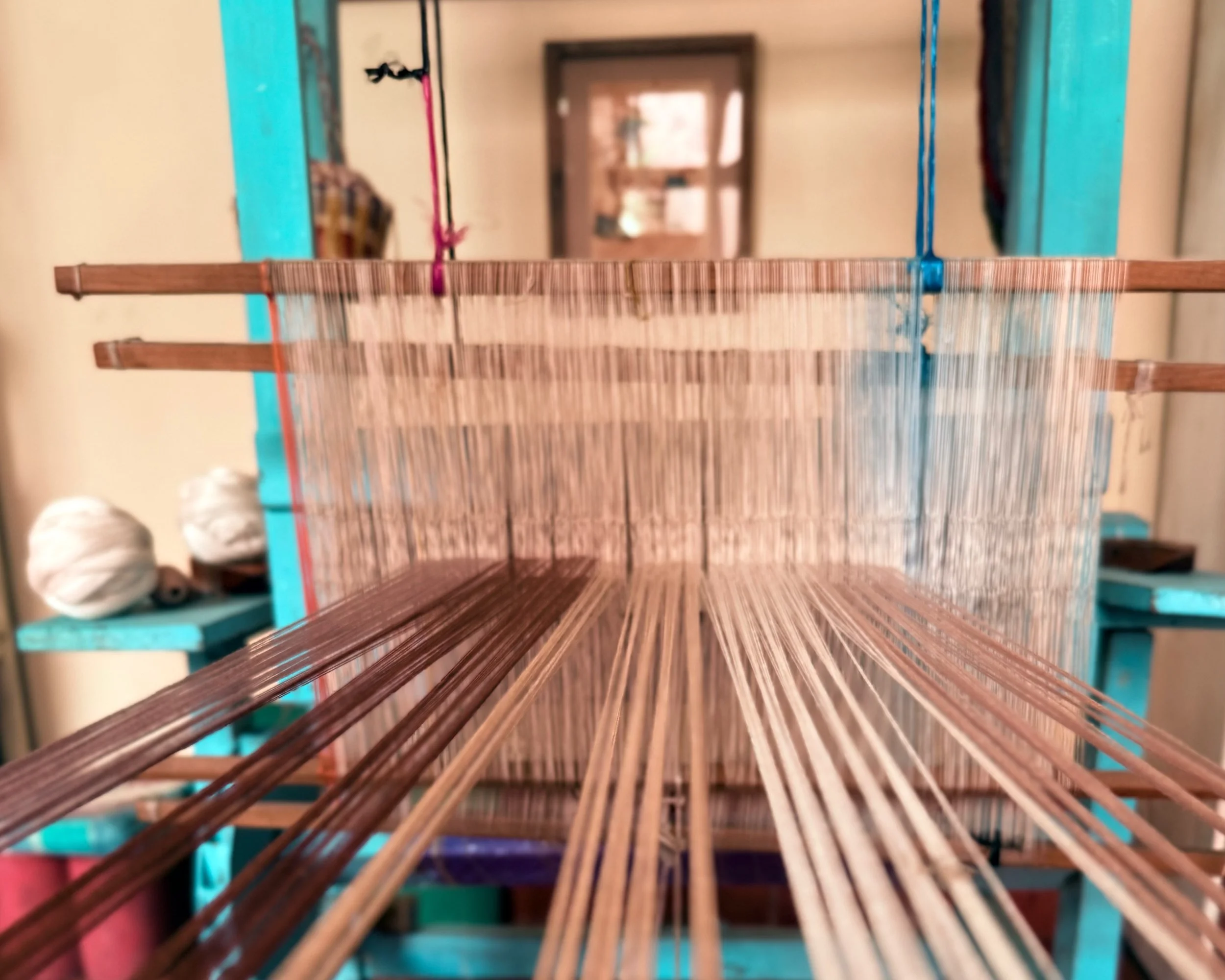Eulalia Chonay
Jocotenango, Sacatepéquez
Eulalia Chonay was born San Juan Comalapa, a small mountain town in the midwestern highlands of Guatemala. Eulalia is a member of the Kakchiquel, an indigenous group descended from the ancient Maya. She grew up in a community of traditional weavers and painters. Eulalia learned weaving from her mother and grandmother, a skill she describes as “an ancestral inheritance that comes from my family.”
In 2012, Eulalia moved from San Juan Comalapa to Antigua in order to pursue better economic opportunities. When the job market contracted during the COVID pandemic, she converted her weaving hobby into a full time pursuit, launching the Kemon Collection. “Initially, it was by necessity… and what began as a necessity is now my passion, and I dedicate myself 100% to it.”
Kemon means “weaving” in the Kakchiquel language; Collection hints at Eulalia’s aspiration to appeal to an international clientele. Eulialia combines traditional weaving techniques with a modern eye for design, creating kimonos, blouses, jackets and bags. She weaves on a sky blue pedal loom that forms the heart of her workshop, using 100% cotton produced in Guatemala.
The Kemon Collection is intimately tied to Guatemala’s material culture, as Eulaia literally deconstructs and reconstructs textile elements. For example, she acquires used huipiles, the traditional hand-woven blouses worn by indigenous women, and re-assembles their fragments as highlights to her pieces. “They are already used fabrics, but I recycle them and give them new life,” she explains. Through this process, she provides a commentary on the ongoing decline of indigenous dress. In addition, she also uses recycled American t-shirts and blue jeans sourced from Guatemala’s popular pacas– large bundles of second-hand clothes bought in bulk from American thrift stores. The jeans and t-shirts are torn into shreds then rewoven to provide contrasting colors and textures and a not-too-subtle critique about how American fast fashion is displacing Guatemala’s textile culture. Eulalia laments, “Now many women prefer to do other work instead of weaving. That is my fear: that this tradition will be lost.”
"It is a great privilege and opportunity to be an Indigenous designer because not all women have the chance to do what they love. Each product is a way of offering a small piece of my culture to the world."


